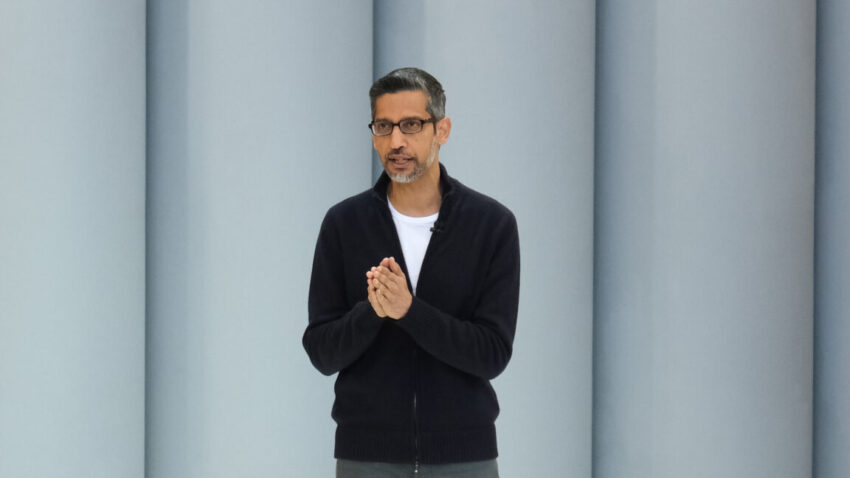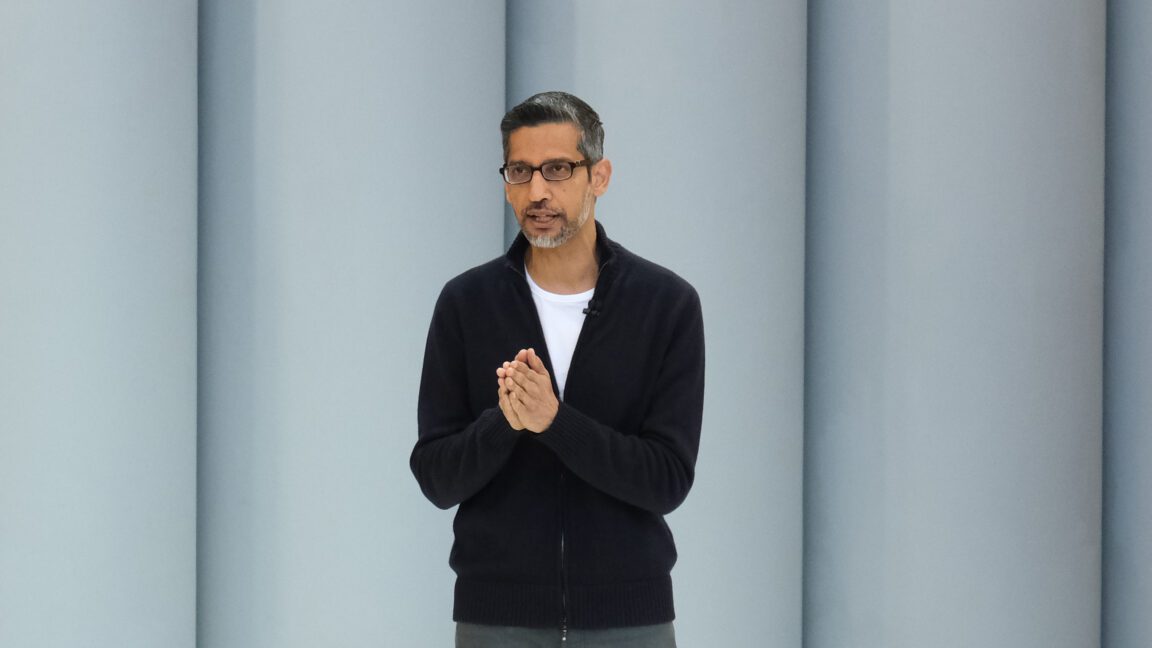
google ceo if an ai bubble pops In a recent interview, Alphabet CEO Sundar Pichai expressed concerns about the current state of the artificial intelligence (AI) market, warning that irrational investment practices could lead to significant repercussions for the industry.
google ceo if an ai bubble pops
Warnings from the Top
During an exclusive interview with the BBC, Pichai highlighted the rapid growth of AI investments, describing this period as an “extraordinary moment.” However, he cautioned that such growth could lead to an “overshoot” in investment cycles, a phenomenon reminiscent of the late 1990s Internet boom. This boom saw an influx of capital into early Internet companies, resulting in inflated valuations that ultimately collapsed in 2000, causing widespread bankruptcies and job losses.
Historical Context: The Internet Boom
Pichai’s comparison to the Internet boom is particularly relevant. In the late 1990s, the promise of the Internet led to a surge in venture capital funding, with many companies achieving sky-high valuations based on speculative future earnings. However, when the bubble burst, it resulted in significant financial losses for investors and the shuttering of numerous companies. Pichai noted, “We can look back at the Internet right now. There was clearly a lot of excess investment, but none of us would question whether the Internet was profound.” This statement underscores the duality of technological innovation: while the potential for transformative change exists, the path to realization can be fraught with risk.
Current Market Dynamics
As of now, Alphabet’s market capitalization has surged to $3.5 trillion, with shares doubling in value over the past seven months. This remarkable growth has drawn increased scrutiny from analysts and investors alike, who are questioning the sustainability of such rapid expansion. Pichai’s comments serve as a reminder that while the AI sector is experiencing unprecedented growth, it is essential to approach this investment landscape with caution.
The Nature of AI Investment
The AI market is characterized by a diverse range of stakeholders, including tech giants, startups, venture capitalists, and governments. Each of these entities has a vested interest in the development and deployment of AI technologies, but their motivations can differ significantly. For instance, tech giants like Google and Microsoft are investing heavily in AI to enhance their existing products and services, while startups often seek to disrupt established markets with innovative solutions.
Investor Sentiment
Investor sentiment in the AI space has been overwhelmingly positive, fueled by the promise of AI to revolutionize industries ranging from healthcare to finance. However, this enthusiasm can lead to irrational investment behaviors, where companies are valued based on potential rather than performance. Pichai’s warning suggests that the current climate may be fostering unrealistic expectations, which could result in a market correction if those expectations are not met.
Regulatory Scrutiny
As the AI market continues to expand, regulatory scrutiny is also increasing. Governments around the world are grappling with how to manage the ethical implications of AI technologies, including issues related to privacy, security, and accountability. Pichai’s acknowledgment of potential irrationality in the market may resonate with regulators who are concerned about the rapid pace of AI development outpacing the establishment of appropriate safeguards.
Implications for Stakeholders
The implications of Pichai’s warnings are significant for all stakeholders involved in the AI ecosystem. For investors, the message is clear: while the potential for high returns exists, so does the risk of substantial losses. Companies that fail to deliver on their promises may find themselves facing harsh consequences, including declining stock prices and loss of investor confidence.
Impact on Startups
For startups, the current investment climate presents both opportunities and challenges. On one hand, access to capital has never been easier, with many venture capital firms eager to fund innovative AI solutions. On the other hand, the pressure to deliver rapid results can lead to unsustainable business practices. Startups that prioritize short-term gains over long-term sustainability may find themselves vulnerable in a market correction.
Corporate Responsibility
For established companies like Alphabet, Pichai’s comments highlight the importance of corporate responsibility in AI development. As leaders in the tech industry, these companies have a responsibility to ensure that their investments in AI are guided by ethical considerations and a commitment to long-term value creation. This includes investing in research and development, fostering a culture of innovation, and prioritizing transparency in their operations.
The Future of AI
Looking ahead, the future of AI remains uncertain. While the potential for transformative change is immense, the path forward will require careful navigation of the challenges that lie ahead. Pichai’s insights serve as a reminder that while the AI market is poised for growth, it is essential to approach this landscape with a balanced perspective.
Technological Advancements
Technological advancements in AI are expected to continue at a rapid pace, with breakthroughs in machine learning, natural language processing, and robotics. These advancements will likely lead to new applications and use cases, further driving investment in the sector. However, as Pichai noted, the potential for overshooting in investment cycles remains a concern.
Long-Term Vision
For stakeholders in the AI ecosystem, adopting a long-term vision will be crucial. This includes focusing on sustainable growth, ethical considerations, and the potential societal impacts of AI technologies. Companies that prioritize these factors may be better positioned to weather any potential market corrections and emerge as leaders in the AI space.
Conclusion
Sundar Pichai’s warnings about the irrationality in the AI investment landscape serve as a critical reminder for all stakeholders involved in this rapidly evolving sector. As the AI market continues to grow, it is essential to approach investments with caution and a focus on long-term sustainability. The lessons learned from the past, particularly the Internet boom and subsequent bust, should inform current practices and guide future investments in AI technology.
Source: Original report
Was this helpful?
Last Modified: November 19, 2025 at 8:39 am
2 views















